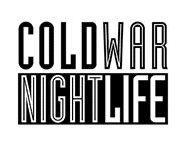Way back in the early 1980s, a trend arose for smashing pieces of metal and organising the resulting sound into ambient urban soundscapes or dance tracks. Berlin’s Einstürzende Neubauten arguably kicked it off, but in short order the availability of new-fangled sampling technology had Fad Gadget (“Collapsing New People”), Depeche Mode (“People Are People”), SPK (“Metal Dance”) and others incorporating post-industrial metal-bashing into their tracks. One of the originals was London’s Test Dept, who reversed the trend by starting as a hammer-wielding group and moving into dance music. This was their first single, released by Some Bizarre to an unsuspecting public in 1983.
Rare Video of the Week
The Department haven’t released their own night serum yet, but a light application of their tester does more than firm and tone. On the evidence of this video, it gets under your skin with a foam of bubbling arpeggiators and some smooth bass, scented with just a hint of dominatrix.
The Anglo-Swedish group, composed of Rob Green and Magnus Lindström (Mr Jones Machine), have been around since 2013, but “As If Transformed” is their first commercial video for Hard Cell Records. Directed by Ed Robinson for OneRedEye, it uses the device of segmented characters, who are picked and mixed to humorous effect. Tearing up and reassembling the pages of Vogue could get you to a similar place, but then you’d miss out on the rotated mohawks and dance steps.
Musical inspirations: 80s sounds. Attitude: model’s own.
Malaria! was a girl band from Berlin, who reflected the unsettled post-punk mood of the walled city at the height of the Cold War but also found their way to Studio 54. They were the antithesis of the Spice Girls – naturally cool, comfortable in their own skins and capable of making an incredible racket. This track from 1983 and the accompanying super-8 film clips capture the band as a blueprint for future generations.
Filmed at a 1984 appearance in the Swedish town of Linköping, this rare clip shows Page performing their hit, “Dansande man” for an appreciative audience. A couple of Pro Ones take a prominent position in the set-up, and both Eddie Bengtsson and Marina Schiptjenko look as cool as could be.
UPDATE
Shortly after this post went up, new footage emerged from Denmark of an even-earlier incarnation of Page from 1983.
These days, Martha Ladly teaches interactive design at OCAD, but in 1983 she had found herself in England, immersed in the country’s flowering pop scene. Together with fellow Canadian art school refugee, Brett Wickens, she wrote and performed this gem, which featured Peter Hook from New Order on bass and had a Peter Saville sleeve. Formerly one of the two Marthas in Martha and the Muffins, Ladly sang for Roxy Music and The Associates, dated Saville and was credited for suggesting the names of OMD releases. Wickens played with The Spoons and Ceramic Hello, released a 12″ with Jah Wobble and worked closely with Saville. Name-dropping aside, this is a lovely slice of Anglo-Canadian pop, just right for summer.
Frank Tovey is sadly no longer with us or we would have to ring to ask about his Prince look in this video gem. Frank was one of the true greats among performance artists, and in his Fad Gadget guise gave us several amazing albums. Unmissable music from an artist who is sorely missed.
The talent of John von Ahlen isn’t limited to exceptional songwriting and prolific remixing. As this video shows, his ability to combine visual codes with deft animation hits the senses in ways that trigger all the right memories to accompany a sharp, dancefloor-friendly track. Can you spot all the references? If so, you’re so 80s you don’t even know it.
Reykjavik punks Q4U picked up a Roland TR808 in the 80s and became cold wave innovators. The Dark Entries label, which released a retrospective collection of their releases, tells the story of the band and the compilation:
Q4U was born the winter of 1980-1981 in Reykjavík, inspired by the British punk movement. It’s original members were Elínborg Halldórsdóttir (Ellý) (vocals), Berglind Garðarsdóttir (Linda) (vocals), Steinþór Stefánsson (guitar), Gunnþór Sigurðsson (bass), Helgi (drums) and Már (synthesizer). Helgi and Már soon left the band and Helgi was replaced by Kormákur Geirharðsson (Kommi) on the drums. By early 1982 they self-released a full length cassette, “Skaf Í Dag” and appeared in the documentary “Rokk í Reykjavík,” which showcased the Icelandic punk scene. This version of the band ended and only two members continued on. In the summer of 1982 Ellý and Gunnþór recruited Óðinn Guðbrandsson (guitar) and Árni Daníel (synthesizer) from the band Taugadeildin. Their drummer was replaced by a Roland TR-808 drum machine they named “Elísabet II”. signaling a change in the group’s sound toward synthesizer-driven post punk. In August 1983 Q4U reinstated Kormákur to record a final set of demos and then called it quits.
This compilation collects 16 songs from 1980-1983. SIde A features the original six songs from the “Q1″ EP, plus 2 songs from the “Rokk í Reykjavík” soundtrack. Side B collects 4 demos from 1982 and 4 demos from 1983, all presented on vinyl for the first time ever. Q4U began with a stylish, aggressive punk image before experimenting with drum machines and synthesizers, which almost nobody did in Reykjavík at the time. The later sound had gothic leanings,often compared with Siouxsie and the Banshees and Xmal Deutschland. Their body of work is united by the powerful vocals of Ellý, who mostly sings in Icelandic about controversial, political experiences, much like Ari Up of The Slits.
This song was our top pick for 2013, impressed as we were by its synthetic heritage and the emotions pulled from circuitry by veteran synthers Page. The band has now added visuals, which fit the modern-vintage theme perfectly. Inspired by the classics of space disco, Page have turned back the clock to 1978 for their new video, but the sound is right up-to-date – nostalgic but new!
